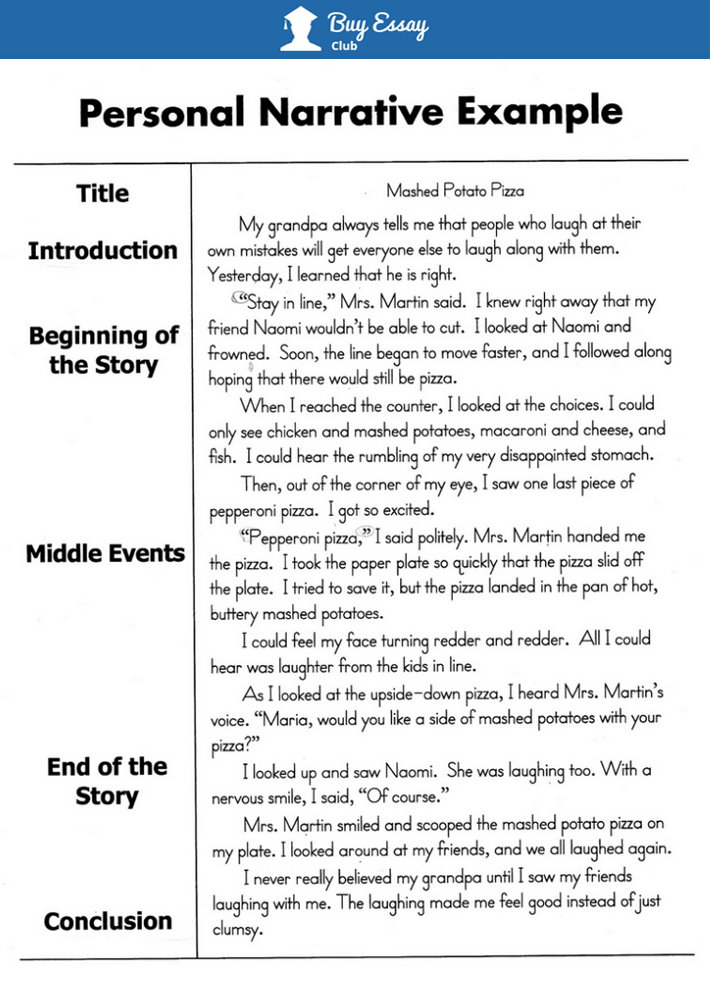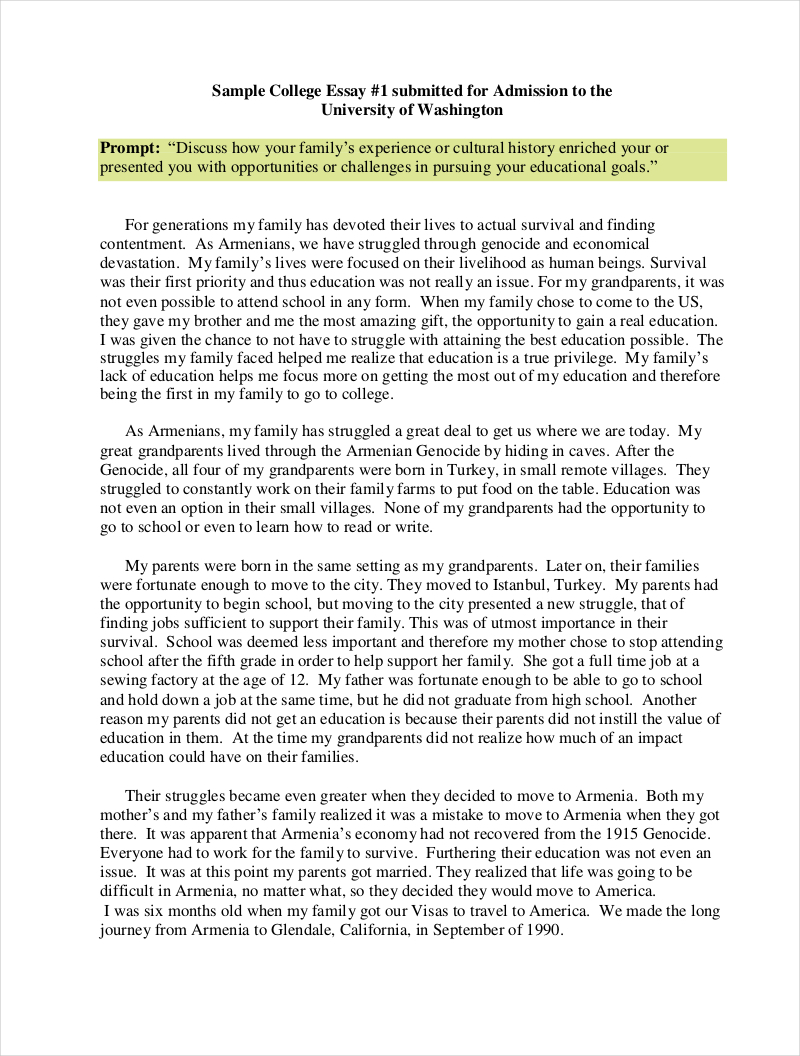
Expository essay. While a reflective essay deals on the emotions of the writer, an expository essay presents facts and verifiable data which presents a fair and unbiased analysis of a topic. Persuasive essay. The goal of persuasive essay is to present ideas and thoughts to readers and to convince them to believe or accept these. The writer aims at demonstrating his/her statements in a logical manner while Essay Samples. Being the most important writing task for college and university students, it is important to look through samples of essays to get a clear picture of how to write one on your own/5 4+ Academic Report Examples. An academic essay is a specific writing genre—as is the love letter, newspaper editorial, or pop-fiction. As a genre, it functions within a set of norms, rules, and conventions. Here are some of the steps that you can follow as a guide to help you write academic essays better and more proficiently
40 Best Essays of All Time (With Links) | Rafal Reyzer
Published on February 9, by Shane Bryson. Revised on February 5, by Shona McCombes. This example guides you through the structure of an essay.
It shows how to build an effective introductionfocused paragraphsclear transitions between ideas, and a strong conclusion. Each paragraph addresses a single central point, introduced by a topic sentenceand each point is directly related to the thesis statement. Example of a well-structured essay An Appeal to the Senses: The Development of the Braille System in Nineteenth-Century France The invention of Braille was a major turning point in the history of disability.
The writing system of raised dots used by visually impaired people was developed by Louis Braille in nineteenth-century France. In a society that did not value disabled people in general, blindness was particularly stigmatized, and lack of access to reading and writing was a significant barrier to social participation.
The idea of tactile reading was not entirely new, examples of essays, but existing methods based on sighted systems were difficult to learn and use.
It not only provided practical benefits, but also helped change the cultural status of blindness. This essay begins by discussing the situation of blind people in nineteenth-century Europe. It then describes the invention of Braille and the gradual process of its acceptance within blind education.
Lack of access to reading and writing put blind people at a serious disadvantage in nineteenth-century society. Text was one of the primary methods through which examples of essays engaged with culture, communicated with others, and accessed information; without a well-developed reading system that did not rely on sight, blind people were excluded from social participation Weygand, While disabled people in general suffered from discrimination, blindness was widely viewed as the worst disability, and it was commonly believed that blind people were incapable of pursuing a profession or improving themselves through culture Weygand, This demonstrates the importance of reading and writing to social status at the time: without access to text, it was considered impossible to fully participate in society.
Blind people were excluded from the sighted world, but also entirely dependent on sighted people for information and education. In France, debates examples of essays how to deal with disability led to the adoption of different strategies over time.
While people with temporary difficulties were able to access public welfare, examples of essays, the most common response to people with long-term disabilities, such as hearing or vision loss, was to group them together in institutions Tombs, examples of essays, At first, a joint institute for the blind and deaf was created, and although the partnership was motivated more by financial considerations than by the well-being of the residents, the institute aimed to help people develop skills valuable to society Weygand, Eventually blind institutions were separated from deaf institutions, and the focus shifted towards education of the blind, examples of essays, as was the case for the Royal Institute for Blind Youth, which Louis Braille attended Jimenez et al, The growing acknowledgement of the uniqueness of different disabilities led to more targeted education strategies, fostering an environment in which the benefits of a specifically blind education could be more widely recognized.
Several different systems of tactile reading can be seen as forerunners to the method Louis Braille developed, examples of essays, but these systems were all examples of essays based on the sighted system.
Reading this way proved to be a rather arduous task, as the letters were difficult to distinguish by touch. The embossed letter method was based on the reading system of sighted people, with examples of essays adaptation for those with vision loss. As a result, this method did not gain significant success among blind students. His intention was to develop a system that would allow the military to communicate at night without the need for light Herron, The code developed by Barbier was phonetic Jimenez et al.
Barbier discovered that variants of raised dots within a square were the easiest method of reading by touch Jimenez et al. This system proved effective for the transmission of short messages between military personnel, but the symbols were too large for the fingertip, greatly reducing the speed at which a message could be read Herron, For this reason, it was unsuitable for daily use and was not widely adopted in the blind community.
Compared to the 26 letters of the Latin alphabet, this was an absurdly high number. Braille kept the raised dot form, but developed a more manageable system that would reflect the sighted alphabet. While the Braille system gained immediate popularity with the blind students at the Institute in Paris, it had to gain acceptance among the sighted before its adoption throughout France.
This support was necessary because sighted teachers and leaders had ultimate control over the propagation of Braille resources. This resistance was symptomatic of the prevalent attitude that the blind population had to adapt to the sighted world rather than develop their own tools and methods. Although Blind people remained marginalized throughout the nineteenth century, the Braille system granted them growing opportunities for social participation.
Written works, such as books and poetry, had previously been inaccessible to the blind population without the aid of a reader, limiting their autonomy. As books began to be distributed in Braille, this barrier was reduced, enabling people with vision loss to access information autonomously. The Braille system also had important cultural effects beyond the sphere of written culture. Its invention later led to the development of a music notation system for the blind, although Louis Braille did not develop this system himself Jimenez, examples of essays al.
This development helped remove a cultural obstacle that had been introduced by the popularization of written musical notation in the early s. While music had previously been an arena in which the blind could participate on equal footing, examples of essays, the transition from memory-based performance to notation-based performance meant that blind musicians were no longer able to compete with sighted musicians Kersten, As a result, a tactile musical notation system became necessary for professional equality between blind and sighted musicians Kersten, Braille paved the examples of essays for dramatic cultural changes in the way blind people were treated and the opportunities available to them.
In this sense, Braille helped drive broader social changes in the status of blindness. New accessibility tools provide practical advantages to examples of essays who need them, but they can also change the perspectives and attitudes of those who do not. Bullock, examples of essays, J. The Story of Louis Braille. Archives of Ophthalmology11 Herron, M.
Blind visionary. Jiménez, J. Biography of Louis Braille and Invention of the Braille Alphabet, examples of essays. Survey of Ophthalmology54 1— Kersten, F. The history and development of Braille music methodology. The Bulletin of Historical Research in Music Education18 2. Weygand, Z. The blind in French society from the Middle Ages to the century of Louis Braille. Stanford: Stanford University Press, examples of essays.
An essay is a focused piece of writing that explains, argues, describes, or narrates. In high school, you may have to write many different types of essays to develop your writing skills. Academic essays at college level are usually argumentative : you develop a clear thesis about your topic and make a case for your position using evidence, analysis and interpretation.
The structure of an essay is divided into an introduction that presents your topic and thesis statementa body containing your in-depth analysis and arguments, and a conclusion wrapping up your ideas. The structure of the body is flexible, but you should always spend some time thinking about how you can organize your essay to best serve your ideas.
Your essay introduction should include three main things, in this order:. The length of each part depends on examples of essays length and complexity of your essay. A thesis statement is a sentence that sums up the central point of your paper or essay. Everything else you write should relate to this key idea.
A topic sentence is a sentence that expresses the main point of a paragraph. Everything else in the paragraph should relate to the topic sentence.
At college level, you must properly cite your sources in all essaysresearch papersexamples of essays, and other academic texts except exams and in-class exercises. Add a citation whenever you quoteexamples of essays, paraphraseor summarize information or ideas from a source.
You should also give full source details in a bibliography or reference list at the end of your text. The exact format of your citations depends on which citation style you are instructed to use. Examples of essays most common styles are APAexamples of essays, MLAand Chicago.
Shane finished his master's degree in English literature in and has been working as a writing tutor and editor since He began proofreading and editing essays with Scribbr in early summer, Have a language expert improve your writing.
Check your paper for plagiarism in 10 minutes. Do the check. Generate your APA citations for free! APA Citation Generator. Home Knowledge Base Essay Examples of essays annotated essay example. An annotated essay example Published on February 9, by Shane Bryson. As you examples of essays, hover over the highlighted parts to learn what they do and why they work. Examples of essays Bullock, J. Mellor, C. Louis Braille: A touch of genius.
Boston: National Braille Press. Tombs, R. France: London: Pearson Education Ltd. What is an essay? What is the structure of an essay? What goes in an essay introduction? Relevant background information that the reader needs to know. A thesis statement that presents your main point or argument.
How to write a good essay: Paraphrasing the question
, time: 14:39Example of a Great Essay (With Explanations, Tips & Tricks)

· Example of a well-structured essay An Appeal to the Senses: The Development of the Braille System in Nineteenth-Century France The invention of Braille was a major turning point in the history of blogger.comted Reading Time: 9 mins 4+ Academic Report Examples. An academic essay is a specific writing genre—as is the love letter, newspaper editorial, or pop-fiction. As a genre, it functions within a set of norms, rules, and conventions. Here are some of the steps that you can follow as a guide to help you write academic essays better and more proficiently Expository essay. While a reflective essay deals on the emotions of the writer, an expository essay presents facts and verifiable data which presents a fair and unbiased analysis of a topic. Persuasive essay. The goal of persuasive essay is to present ideas and thoughts to readers and to convince them to believe or accept these. The writer aims at demonstrating his/her statements in a logical manner while
No comments:
Post a Comment